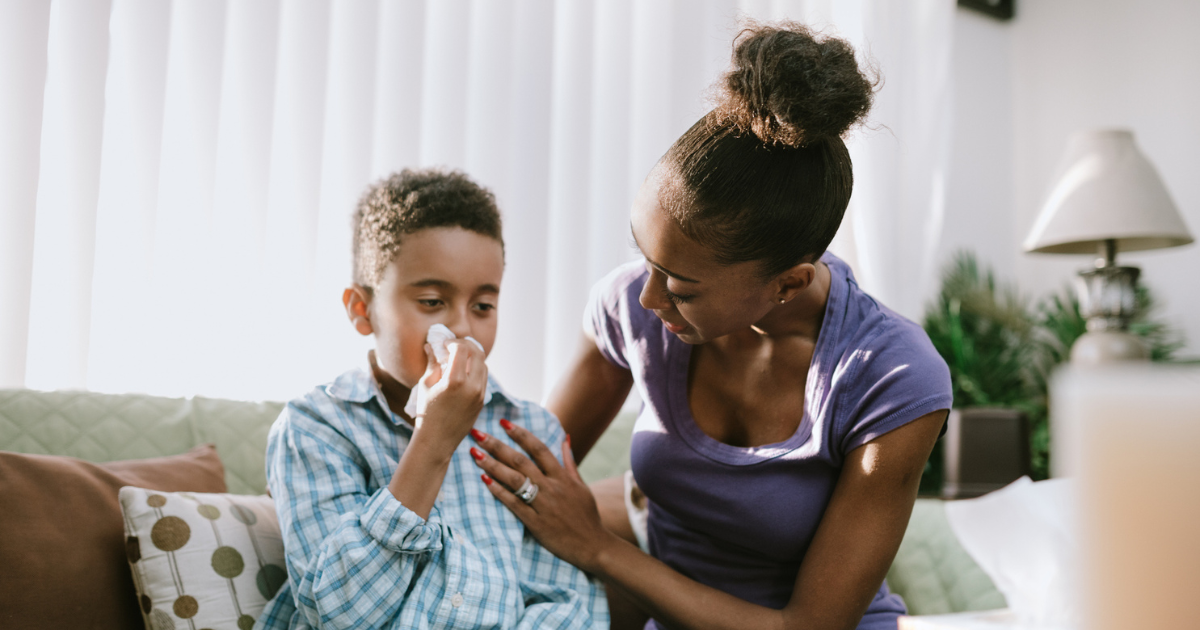What is human metapneumovirus, and should I be worried about it?

According to the Centers for Disease Control and Prevention, the human metapneumovirus, or HMPV, saw a spike in cases this past spring. By mid-March, HMPV peaked a bit later than other respiratory illnesses, causing more trips to the hospital for those most vulnerable – the very young, the older population and people with compromised immune systems.
A person who develops symptoms may not even know they have it and assume they have a respiratory virus they’re more familiar with. Further, testing for it may not be top of mind unless you end up in the emergency room.
What is HMPV?
Like other respiratory virus types, HMPV is not new. It’s been on the radar since the early 1950s, gained more attention in 2001 due to unexplained respiratory infections in children from the Netherlands, and was eventually determined to be a close relative of the avian metapneumovirus.
HMPV is one of many respiratory viruses that cause symptoms similar to the common cold, influenza (flu) or respiratory syncytial virus (RSV). The HMPV incubation period is three to six days, with symptoms resolving within a week or so in otherwise healthy individuals. Symptoms can linger much longer for those at higher risk. Like other respiratory viruses, you can get it more than once.
HMPV symptoms are similar to those of the common cold or flu and may include:
- Hacking, persistent cough
- Fever
- Congestion
- Fatigue
Although viruses like these have been around for quite some time, it’s not always easy to tell the difference between them when a person gets sick. Thankfully, experts are learning more and more about the causes of respiratory illnesses, how they are transmitted and appropriate treatment.
More effective testing also allows doctors to tell the difference between viruses like COVID-19 and the flu.
“We’re getting better at developing rapid PCR tests for patients that can detect a wider array of viruses at one time,” says Nebraska Medicine infectious diseases expert Carlos Gomez, MD. “One of our most common platforms can test from five to seven distinct viruses, including testing for HMVP if necessary.”
How contagious is HMVP?
How contagious a respiratory virus is depends upon numerous factors, including if changes in behavior to prevent the spread are taken and vaccine availability. HMVP is not at the top of the list compared to other respiratory viruses regarding disease burden and transmission. HMVP comes in at around number four after RSV, influenza and coronaviruses.
The impact of viruses differs from year to year, and the severity of one virus over the other varies for numerous reasons. “It’s important to keep respiratory viruses in perspective,” says Dr. Gomez. “HMVP is not the most dangerous virus out there for the general population, but it can progress to more serious complications for those at high risk. This is why it’s important to keep taking precautions to keep yourself healthy and protect those more vulnerable.”
Should I be worried about getting HMVP?
HMVP may resolve with fluids, rest, over-the-counter medications, and other at-home treatments for the average healthy adult. If symptoms worsen beyond a few weeks or you have significant trouble breathing, see your doctor to ensure it hasn’t developed into something else. There is no specific treatment or vaccine for HMVP.
Like other respiratory illnesses, HMVP can progress to conditions like bronchitis and pneumonia, especially for high-risk patients. If it progresses into a more severe condition, hospitalization and even death can result.
Should I get tested for HMVP?
If you are at high risk or worsen over time, ask your doctor about testing. Those at high risk include people that are immunocompromised, under 2 years of age, over age 65, patients who have received an organ transplant and people with chronic conditions like heart or lung disease.
“For these patients, a respiratory illness of any kind can be especially triggering for developing worse problems and have the potential to unleash more serious complications,” adds Dr. Gomez. “We see vulnerable patients end up in the hospital from a series of medical events that began with a virus like HMVP. We must then intervene to resolve a bigger, more life-threatening problem.”
What should I do if I get negative test results for COVID-19, influenza and RSV, but my symptoms worsen?
You should return to your doctor if:
- You are at high risk and feel worse beyond a week or have a fever return after it’s resolved
- You have difficulty breathing
- Symptoms seem to get better but return after a few days and get worse







